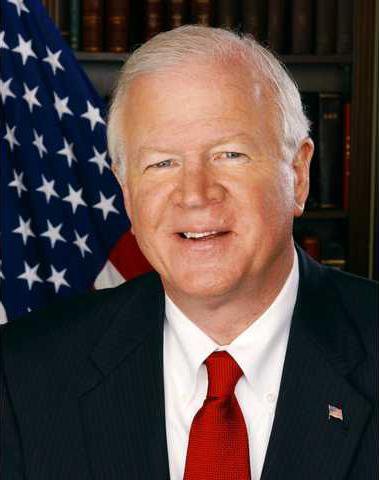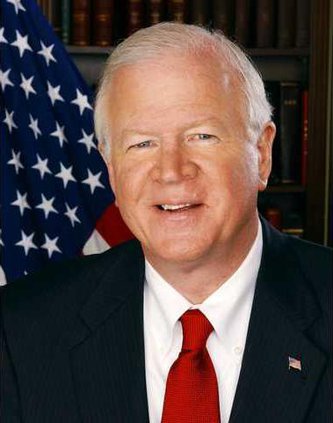Saxby Chambliss said he anticipates his campaign spending will top the amount from the 2002 U.S. Senate race.
Chambliss, who beat Max Cleland six years ago and is running for re-election, said he spent $9 million in the 2002 race.
“It could be $12 to $15 million race. It’s just insane,” he said.
While he doesn’t expect any competition from the Republican side, he said there are currently six Democrats who are looking to face him in November, including Statesboro native Josh Lanier and former DeKalb County CEO Vernon Jones.
As the ranking Republican on the Agriculture, Nutrition and Forestry Committee, Chambliss said one of the highlights of the new farm bill will phase-in a lower gross revenues cap for farms, from $2.50 million in 2008 to $750,000 in 2010. This means farms with an adjusted gross income more than this amount will be unable to collect any government subsidy for agriculture.
Another topic of discussion is that more farmers are planting more acres of corn than ever before.
“The price of corn has certainly driven the price of every other commodity up,” Chambliss said. “People are planting corn because they know they’ll get a good profit. If you’re going to buy cotton, you’re going to pay a hefty price for it because of the competition from corn.”
There is a growing demand for corn to produce ethanol, which is currently subsidized by the federal government.
“There is a lot of pressure out there to produce more ethanol. And it’s part of the answer, long term, to our petroleum independence issue,” Chambliss said. “We depend upon on petroleum imports for 62 percent of our domestic needs.
That’s way out of balance, especially when you consider where we get it from — Iraq, Iran, Venezuela and Russia — some of our real close friends and some of the more stable countries in the world.”
Chambliss said there is a three-part solution to America’s energy difficulties. First, the country has to continue to push alternative energy. Second, the country has to develop more resources domestically, drilling in the Alaska National Wildlife Region or on the continental shelf off the coast of some Eastern states. Third is emphasizing conservation.
“We’ve got to use more conservation practices as individuals than we’ve ever done. We’re used to hopping in our cars and going wherever we want to go instead of using public transportation or riding with our neighbor,” he said. “Things are going to have to change from a conservation standpoint.”
Chambliss also addressed the pressure Congress is receiving to place tariffs on Chinese goods or to prevent them from buying Treasury bills.
“There’s some concern over China buying a lot of our debt,” he said. “But at the same time, you have to remember there’s a reason they’re buying our T-bills and that is they look at the United States as the most stable country in the world. We have an economy that is going to continue to grow and is a safe investment with a good rate of return. It’s to their advantage for the U.S. economy to continue to grow.”








